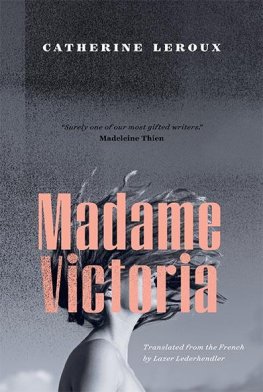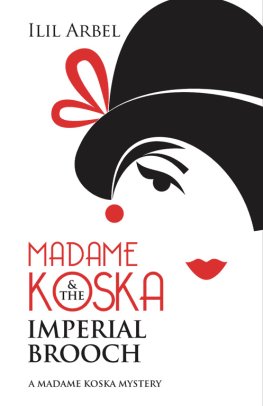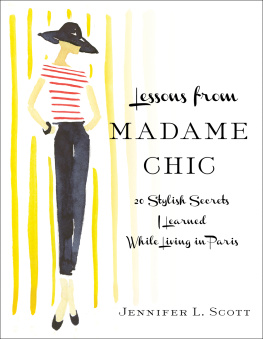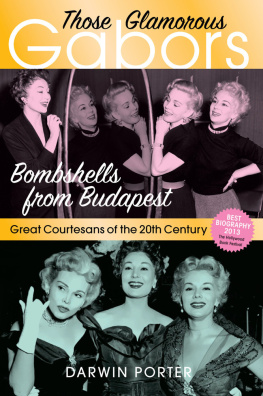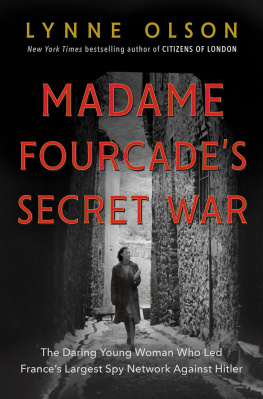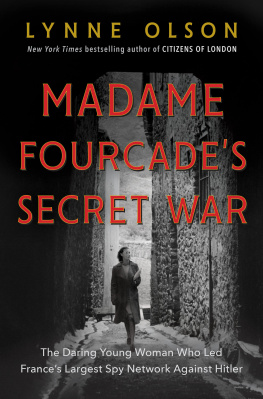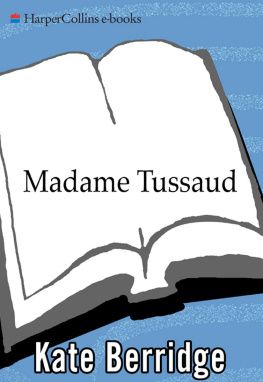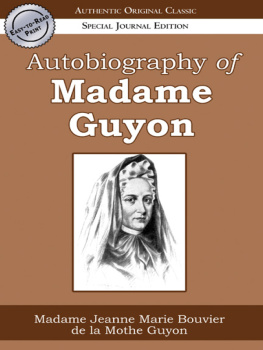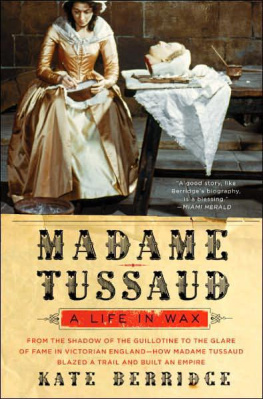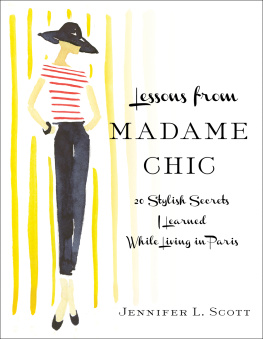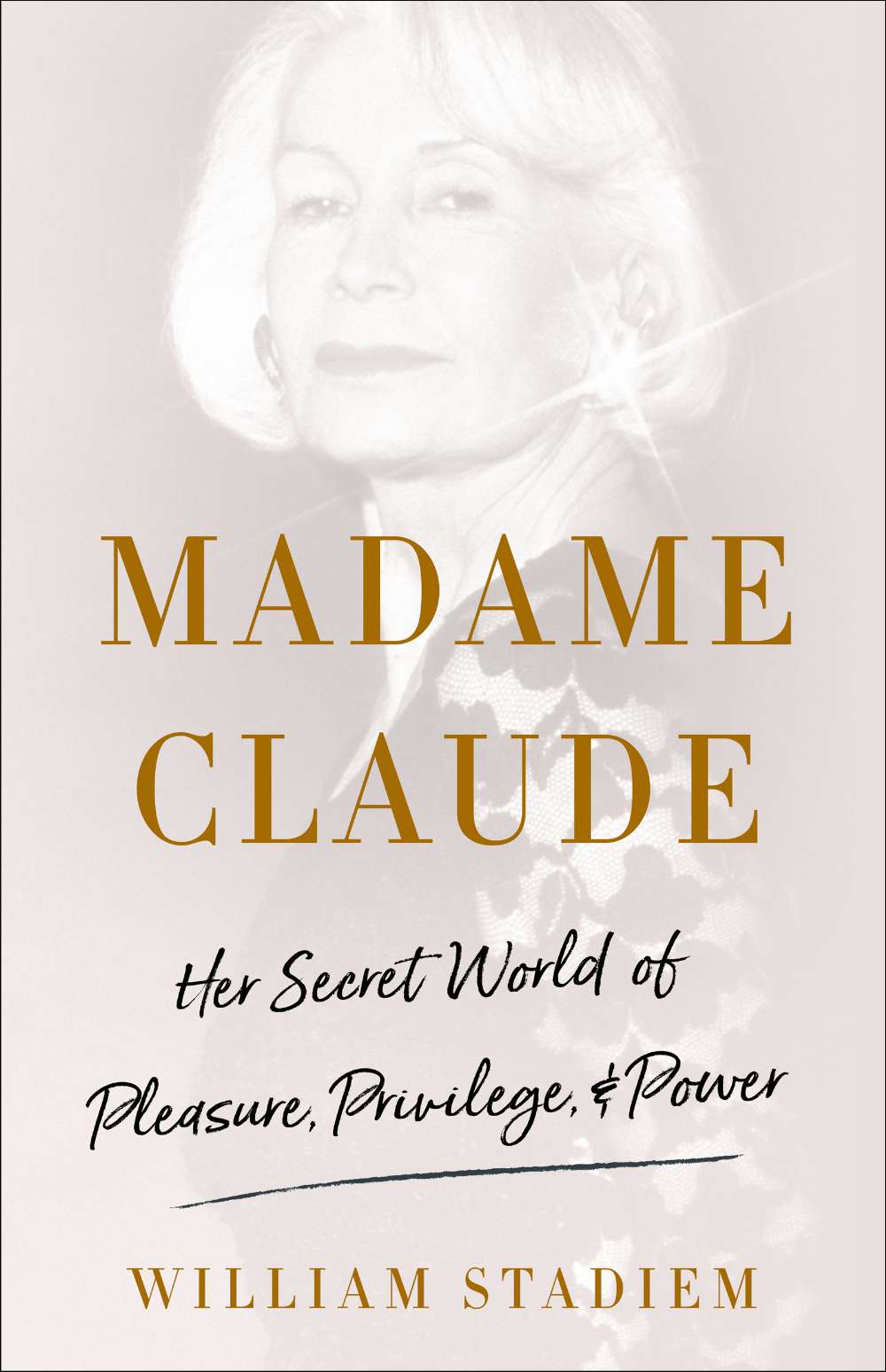Contents
Guide
Pagebreaks of the print version
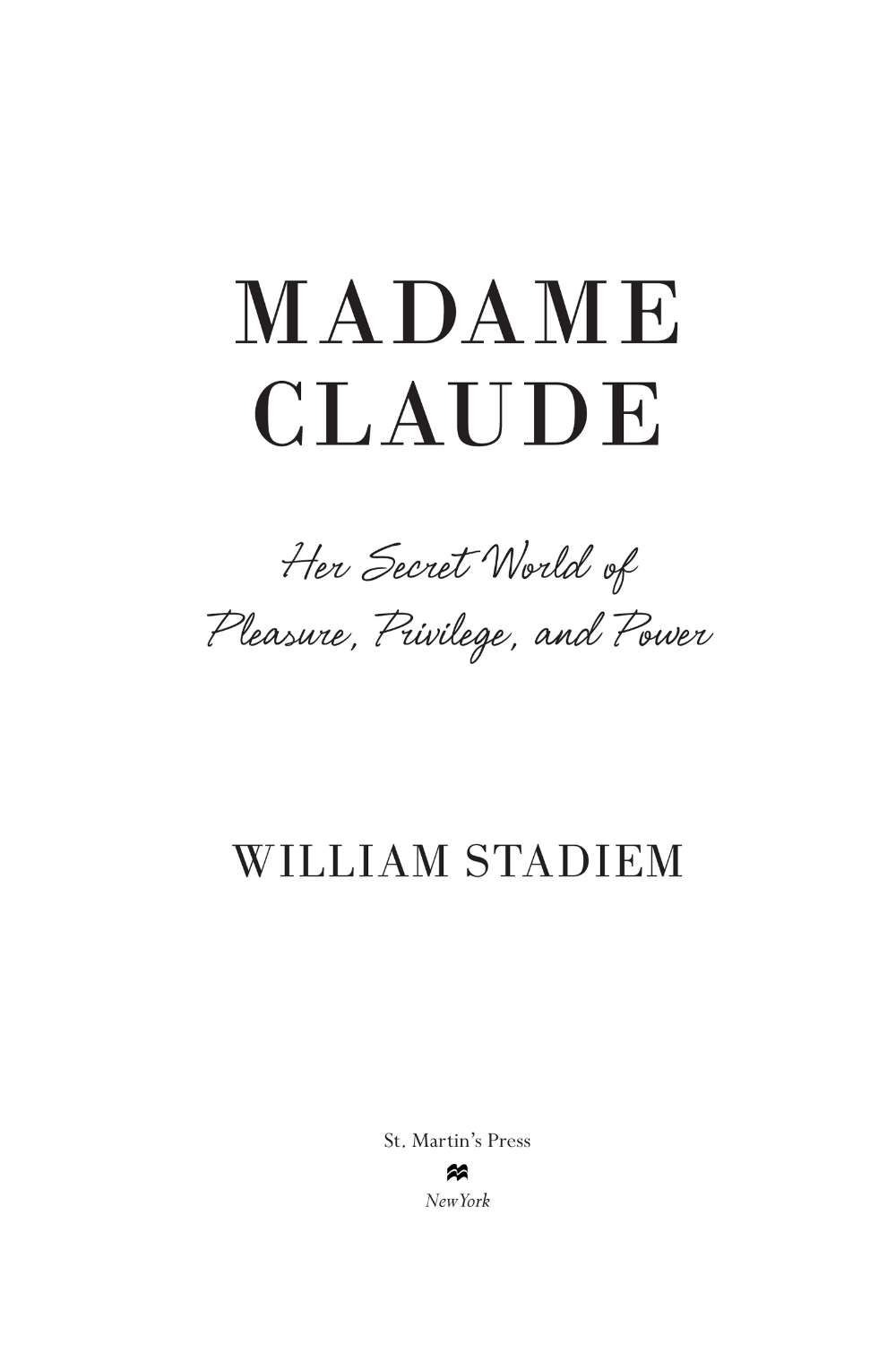
The author and publisher have provided this ebook to you for your personal use only. You may not make this ebook publicly available in any way. Copyright infringement is against the law. If you believe the copy of this ebook you are reading infringes on the authors copyright, please notify the publisher at: us.macmillanusa.com/piracy.
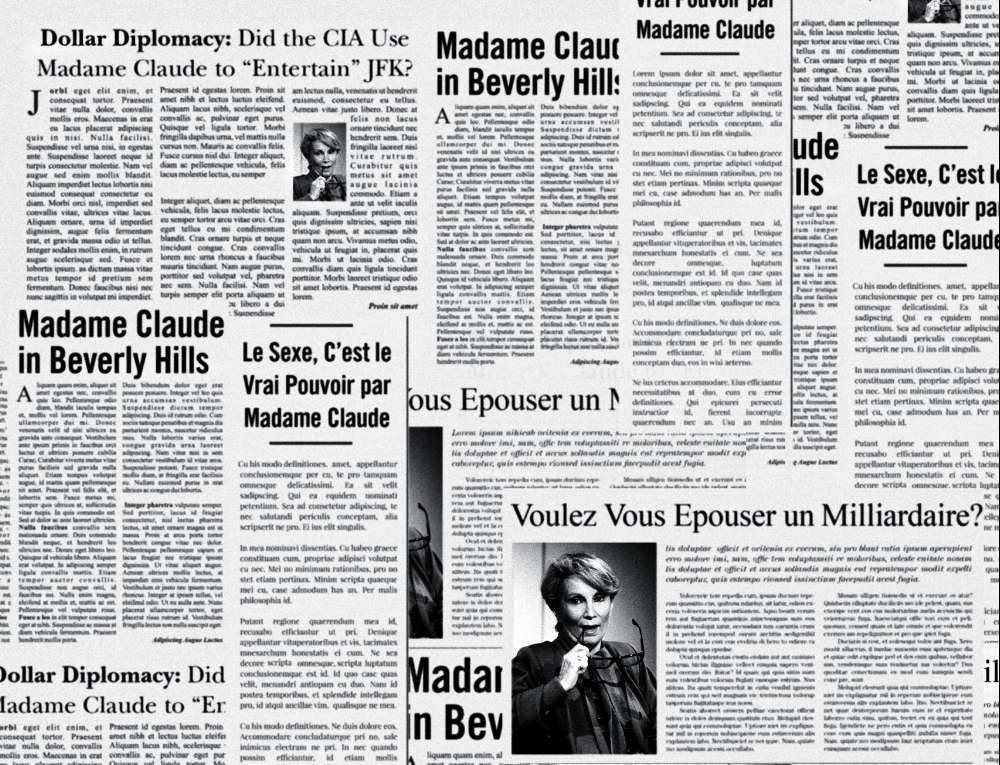
For my mother
If the measure of a persons power is the magnitude and amplitude of the secrets he or she keeps, then Madame Claude was surely one of the most powerful people in the world when I met her in Los Angeles in 1981. From 1957 to 1977, Madame Claude had been the unofficial Madame de la Rpublique of the Old Guard regimes of Charles de Gaulle and his successor, Georges Pompidou, catering to the sexual whims of fellow heads of state, royalty, tycoons, and stars who bestrode the earth. It was her connection to Hollywood and her panoply of celebrity clients that had occasioned her relocation to the West Coast. Notwithstanding the blandishments of Beverly Hills, despite the sun and despite the stars, her loyal stars, when I first encountered the elegant French Queen of Sex, she seemed as dispirited in her exile as Napolon on Saint Helena.
Madame Claude had fled France in 1977 in the face of looming criminal charges that she had evaded taxes on millions of dollars in undeclared income. What she denounced as a political witch hunt was couched by the new centrist government of Valry Giscard dEstaing as an effort to show the world that Frances commitment to American-style modernity was more than allowing a few McDonalds to open on the Champs-Elyses. Giscard was waging an antiprostitution campaign against the supermadam who was considered the embodiment of Frances decadent ancien rgime. Claude herself detested the p word. She vehemently maintained that her famous clientele wasnt paying for sex ; they were paying for an experience, a spectacle. Claude wasnt in the sordid business of putting bodies in beds. She was in the rarefied business of making the dreams of the worlds biggest dreamers come true.
If Paris was the capital of sex, Madame Claude was the capitalist of sex. In her late fifties, as chic and slim and blond as the most high-toned Paris socialite, Madame Claude held court at the high tables of Hollywoods power restaurants as filmdoms leading actors, agents, and moguls compulsively table-hopped to kiss the hand that had answered the magic telephone that could turn any celluloid fantasy into reality. For her alchemy, and for basically creating and perfecting the concept of the call girl, Madame Claude had become rich, one of the richest entrepreneurial women in the world of her time. She was to eros what Coco Chanel was to fashion, elegant, imperious, and entirely self-made. If she werent trading in sex, she could have been a beacon of feminism, a genuine role model.
Ever since I had first discovered Paris as a student, I had been aware of Madame Claude. She was as French as the Eiffel Tower. A date with a Claude girl, as they were known, was one of those pinnacle Paris experiences, like staying at the Ritz or dining at Maxims or wearing a Lanvin suit, that I never expected to have, an apotheosis of luxury that the French do better than any other nationality. Yet here I was in Beverly Hills, hanging out with the woman who knew more about the private lives of the worlds brand names, names like Kennedy, Rothschild, Mountbatten, Agnelli, Onassis, Pahlavi, Saud, Sinatra, Brando, than anybody else. My mission was to convince her to collaborate with me on a book about those names and about those lives, as well as the lives of the women she called her swans, the Cinderellas to whom she played the role of the most outrageous Fairy Godmother who ever existed.
I had a simple title for the book: Sex and Power. Nobody could tell it better than she. I thought it was a project that, aside from its potential pecuniary rewards, might help relieve the entropy of Claudes American displacement. Because Claudes initial affect was that of a banker, a woman of high finance, I fell prey to the image of her as a James Bond villainess, a lady Auric Goldfinger. But as I got to know her, I saw that Madame Claude did not love only gold. Even more, she loved to talk, to tell stories, to provide the lowdown on the high-ups. She was as acute as William Buckley, as incisive as Joan Rivers and Don Rickles combined.
In short, Madame Claude was great fun, though you didnt want to be on her bad side, as was the current French government and the Establishment that had reneged on a collective promise to always protect her, as she had always protected them. Now that this unique social contract had been breached, it seemed that the act of telling the truth, the awful truth, might set Madame Claude free. She certainly enjoyed telling it to me. I often asked her if she were afraid of reprisal. Thisshe waved around at the movie stars and the foie gras and the vintage wines of the restaurant where we were diningthis was the reprisal, her own gilded cage.
As for the reprisal of a more corporeal sort, Madame Claude was one of the most fearless people I had ever met. She fused the politesse of an avenue Foch doyenne with the sangfroid of a Mafia capo. Claude knew exactly how weak male flesh could be. She had catered to the flesh of rulers, of despots, of dictators, of arms merchants, of wielders of immense, deadly power. She knew what they needed and wanted and was utterly confident that her unique ability to provide femininity on its ultimate level would be her perennial protective shield. As for the swans who were her trademark, to believe the politically correct party line that Madame Claude had relocated to the epicenter of American beauty to retire from the sex trade and open a pastry shop would have been beyond nave. With stunning actresses and models to groom and perfect and rich and famous men to introduce them to, how could Madame Claude possibly resist the siren call of Alexander Graham Bell to seize the line and make the match? It would have been like inviting Michael Jordan onto a basketball court and not expecting him to take a shot. Madame Claude was truly the Nijinsky of the fix-up.
I spent several months talking and talking with Madame Claude in Los Angeles, during which we somehow became friends. I was a good listener. Then again, with the adventures she could recount, who wouldnt have been? In the course of our unlikely relationship, I ended up meeting many of the legends of the world whose mandate was to create legends. There was a factor here of gilt by association. If I could be keeping company with Madame Claude, I perforce must be someone worth knowing. That was entertainment. I also met a number of her swans, some local, others imported from Europe, all special and all relentlessly ambitious, even for Hollywood. I got a vivid idea as to how Madame Claude played the headmistress of her very unique finishing school. Above all, I was amassing a treasure trove of material for the book she was warming to with each new story she told.
And then, without warning, Madame Claude made what is known as a French exit, leaving without a trace, without a good-bye. I later learned that, with the French taxmen and the American immigration men breathing down on her, she had made another great escape, this time to her cattle ranch in the South Pacific. By 1985, with the Socialist Franois Mitterrand in office, Claude must have thought the coast was clear; she returned to France, to her country sheep farm. For the first time in her formerly charmed life, Madame Claude made the wrong gambit. She was arrested and sent to prison, not once but twice, in a tragic downhill decade in which the Queen of Sex tried to resume a throne that her ever-Americanizing country had abolished.


